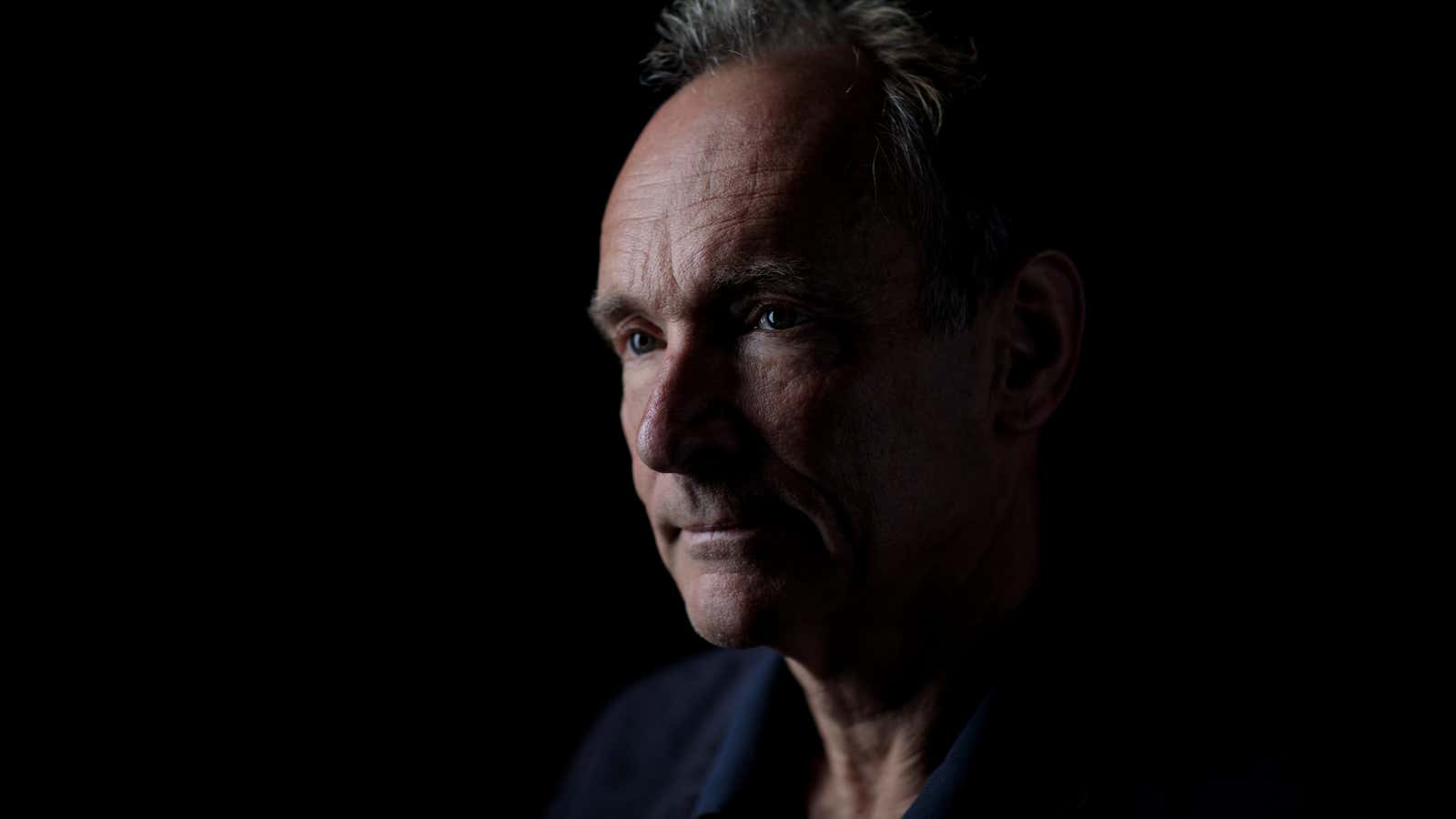Internet shutdowns have become increasingly common in Africa to fight dissent and restrict protest action, particularly during elections or moments of economic crisis. For Tim Berners-Lee, the inventor of the world wide web, these actions are violations that the world cannot ignore.
“It should not be tolerated,” Berners-Lee said of internet shutdowns while speaking to Quartz Africa on the occasion of the 32nd anniversary of the creation of the world wide web. “We really have to fight against it.”
In 2019, Berners-Lee launched the Contract for the Web, an action plan that asks governments to commit to “keep all of the internet available, all of the time.” He describes internet access as a human right, and said shutting it down creates an untenable power divide.
“Often, it connects with those other rights: the right to express, the right to organize, the right to figure out what’s going on, the right of informing yourself, so as to be a good, functional member of society,” he said. “Countries should be putting their energy into connecting, the rest of the people who are not yet connected,” he said, “rather than turning it off.”
A common occurrence
Internet shutdowns involve either blocking access to social media websites and messaging apps, or blocking internet access altogether, and in the process hiding human rights violations, preventing citizens from organizing, and restricting access to information. They’re more than an inconvenience to users and businesses, they’re a major threat to democracy.
As the continent has become more digitized, African governments have increasingly used shutdowns as a blunt tool to wield control. The first internet shutdown in sub-Saharan Africa reportedly happened in 2007 when Guinean president Lansana Conté ordered the country’s internet service providers to block all access following widespread protests calling for his resignation.
Social media in particular has become a target, as it has grown to become a daily part of life in Africa. Social media sites have proven to be powerful platforms for people to express their voices against authoritarianism. But since authoritarian African administrations find it difficult to control the editorial power due to lack of jurisdiction, the easier option for them is to shut down the sites.
The most recent internet shutdown saw Senegal temporarily restrict access to social media and messaging apps amid protests over the arrest of an opposition politician.
Twenty-eight African countries have blocked access to social media platforms in the past five years, 14 of these cases being election-related, says a study by Surfshark, a privacy protection company. It recorded at least nine political cases of social media restriction in eight countries last year. Globally, Surfshark says, 63 countries have restricted social media access since 2015.
Take governments to task
Internet shutdowns have huge impacts. They disrupt lives and livelihoods, damage human rights, and hurt public health and safety, says a report by Access Now, a digital rights nonprofit. But the shutdowns are not just an African problem. Out of 29 countries globally in which they were were recorded, 19 were outside Africa, the report says.
Berners-Lee said governments that shut down the Internet should be taken to task by their own people and other governments.
He said rather than shutting down the internet, governments should put their energy into connecting people who still don’t have access to the internet. This aligns with his call with his World Wide Web Foundation co-founder, Rosemary Leith, in a letter on the web’s birthday, to connect all young people to the internet.
“The message is keep it on, keep it connected,” he told Quartz.
Sign up to the Quartz Africa Weekly Brief here for news and analysis on African business, tech and innovation in your inbox.
